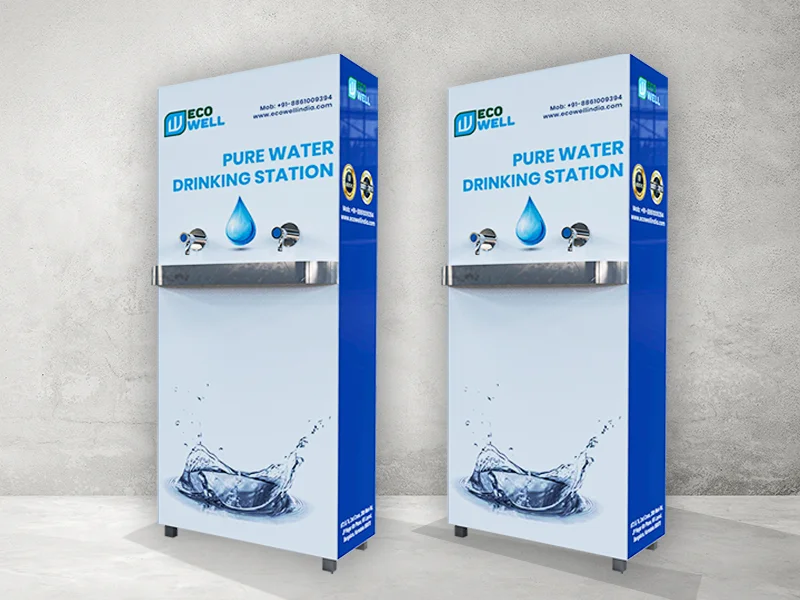
Want to know the difference between Reverse Osmosis (RO), Ultra Violet (UV), and Ultra Filtration (UF) water purifiers? You clicked on the right link!
Given the current scenario, drinking clean water is the most important thing. Not only does it quench your thirst but also provides benefits like healthier skin, faster metabolism, and better digestion.
For something that we consume all the time and frankly can’t survive without water isn’t given much thought. Furthermore, there are just too many variations in the market, making things even more complicated.
You might even get confused as to what purpose of which variant serves. But you need not worry! We have done the research for you!
You’re about to discover the difference between RO, UV, and UF right here!
Let’s start with What are Reverse Osmosis (RO) water purifiers?
Often regarded as the most reliable water purifiers out there, RO water purifiers are capable of killing all bacterias and viruses present in the water.
This happens through a semipermeable membrane that is used to eradicate the large particles as well as dissolved germs, bacterias, and viruses. So, because the dissolved impurities and salts are left behind, only water molecules move towards the other side of the membrane.
Reverse Osmosis (RO) water purifiers require electricity to boost tap water pressure. The water requirement is slightly higher when compared to other water purifiers.
Fact Check: RO water purifiers retain the essential minerals, so the popular saying that RO tends to eliminate the vital minerals is just a myth, really.
What are Ultra-Violet (UV) water purifiers?
Known as one of the most cost-effective water purifiers, Ultraviolet (UV) also has the ability to kill bacterias, germs, and viruses. It does so, without sabotaging its taste.
Under this method, normal water goes through Ultraviolet (UV) rays that kill every bit of the harmful bacteria in the water. This makes the water clean, drinkable, and disinfected from germs and bacteria. Similar to RO, it requires electricity to do the needful as well but does not require additional power to boost water pressure.
That said, it fails to remove the dead cells and dissolved salts present in the water.
Furthermore, UVs are quite easy to maintain, highly reliable, and most importantly, provide chemical-free water!
What are Ultra Filtration (UF) water purifiers?
Unlike, the above two, UF water purifiers don’t require electricity to function. They can operate very well without electric power. UF water purifiers can eliminate all the bacteria, viruses, and germs present in the water. They are also capable of re
moving dead bacteria and germs from the water after killing them.
It does so through a hollow membrane, however, is unable to eradicate dissolved salts and germs.
So, what’s the difference between RO, UV, and UF?
Well, RO and UV require electricity, and UF doesn’t. Plus, RO water purifiers require even more since they need to boost the tap water pressure.
All three can kill bacteria, RO and UF can also remove the dead cells, but only RO is capable of killing all the germs, eliminating dead cells, and dissolved salts.
RO and UF can work with dirty water, but UV requires clean water to operate.
RO can remove up to 90% TDS present in the water, the same can’t be said for UV and UF water purifiers.
However, a lot of water gets wasted in RO water purifiers, whereas UV and UF guarantee no water wastage.
Thankfully at present, in the market, there are water purifiers that provide all three purification methods RO, UF, and UV in the same model. You can check out of ours here: EcoWell India Water Purifiers.




Leave a Reply